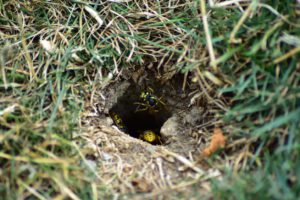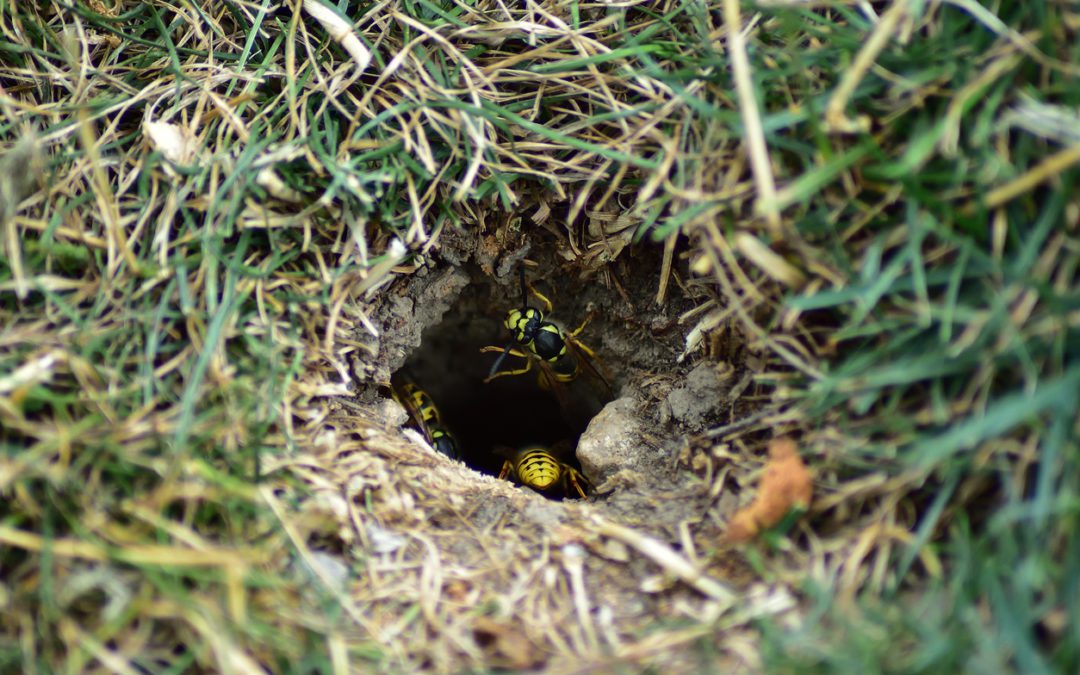 Ground-dwelling wasp nests can be difficult to identify since they are located underground and aren’t immediately visible to the untrained eye. A nest will often remain undiscovered until an unsuspecting victim steps on it. Here are some techniques for learning to recognize a wasp nest and determining if removal is the best solution.
Ground-dwelling wasp nests can be difficult to identify since they are located underground and aren’t immediately visible to the untrained eye. A nest will often remain undiscovered until an unsuspecting victim steps on it. Here are some techniques for learning to recognize a wasp nest and determining if removal is the best solution.
Identifying a ground-dwelling wasp nest
Ground-dwelling wasps avoid moisture-rich areas, preferring to build their nests in dry soil. Similar in appearance to an ant hill, a nest is produced when the queen digs a mound, leaving loose soil around the base. To differentiate between a wasp nest and an ant hill, be sure to notice the entry point. Wasps are larger, and their entry point will be about the size of a fingertip. Also, look for activity around the nest. If the mound is exhibiting a great deal of wasp traffic, avoid the area.
If you discover ground-dwelling wasps
Despite having a short life span (two weeks to a month), ground wasps can be both a nuisance and a danger to people trying to enjoy an outdoor area. If ground wasps sense any threat to their living space, they will defend it fiercely, attacking people who are simply walking by.
Because of their brutally aggressive nature, wasp removal isn’t a task one should handle alone. Attempting to eliminate a colony by pouring gasoline on the nest or vacuuming the wasps out of the nest is an extremely dangerous and ill-advised decision.
While there are spray pesticides designed for wasp extermination, it takes great care and technique to properly execute this method of removal. Spraying an active nest will result in an attack, so you must approach the nest at night when the temperature is lower and the wasps are resting. Over the next several days, be sure to observe the nest from a safe distance, checking for wasp activity. If you are certain that the problem has been solved, simply cover the nest with dirt. When doing this, be mindful that some wasps may have dug alternate entry points in the extermination process and may still be living in the nest.
When dealing with aggressive stinging insects, it is best to contact a wasp control expert specializing in bee, wasp, and hornet removal. A professional will know the best technique for eliminating stinging insects and will often be able to safeguard the highly trafficked areas of your property against future nest formation.


